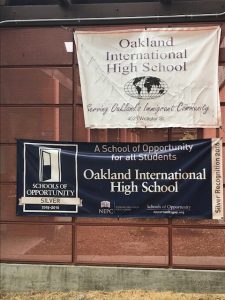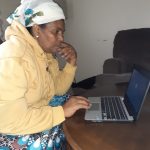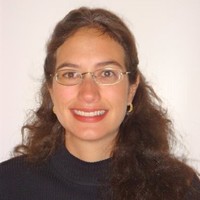ACE Spectrum
ACE Spectrum
Ace Spectrum is about you — the ACE Learning Centers.
It’s a quick sharing of ideas, inspiration, opinions and best practices among our continuing education organizations.
Please join the conversation.
Winter Season Brings Hope, Awards and Community to KALW and Audio Academy Members
By Ben Trefny, News Director, KALW, Audience Supported Public Media and Wren Farrell, Audio Academy ‘21
Winter is upon us. Despite the largely dreadful year we’ve worked through, I feel like this final season is one of hope. Perhaps it’s the COVID-19 vaccine that just started to be distributed. Perhaps it’s because I know we can come together to overcome extraordinary challenges. I’ve seen it. Altogether, we’ve seen it all this year, and there’s reason for optimism.
I just spent many hours reflecting on the ACE Spectrum blog posts KALW has produced throughout the year, and it sure has been a busy one. Thanks, as always, to ACE for the extraordinarily generous and open-hearted support that makes our work as journalists training journalists possible. It’s more reason for hope, and it continues to ripple out farther and farther.
To that point, we recently received uplifting news. Audio Academy graduate Christine Nguyen (’18) was honored with an award from the Asian American Journalism Association. She won the AAPI Excellence prize for her story Vietnamese Immigrants Care For Parents With Dementia, Amidst Stigma.
ABOUT THE PROJECT: Infused with personal experience and heartfelt storytelling, Christine Nguyen’s audio reporting explores dementia and its surrounding stigma, as well as the disproportional impact it has on Asian communities. Through the intimate relationship with a Vietnamese immigrant family, Nguyen breaks down the intricacies surrounding the condition from its causes to the responses currently in place.
JUDGES’ REMARKS: Nicely produced piece, with natural weaving of current and past events together. I imagine finding a Vietnamese family that was willing to open themselves up to interview for this piece and building that trust with them was not easy. It deftly avoids similar podcast pratfalls that turns the subject and viewer relationship into one that is patronizing, overly preachy, or overly dramatic. Overall, this was well done and holds its gravitas on multiple listens.
Congratulations, Christine! We’re very proud, and excited to rebroadcast that story for our audience in early January. Incredibly, that’s just a few weeks away.
One of our current Audio Academy fellows is Wren Farrell. He’s been doing a wonderful job reporting spots, including:
U.S. Army Corps Of Engineers Ends Plans To Dredge San Francisco Bay
Does Getting A COVID-19 Test Mean You Can Safely Travel? Probably Not
California’s COVID-19 Vaccine Committee
Now, I have the pleasure of editing a feature he’s currently making about a farmer in Davis, and how she’s been dealing with the pandemic.
Here are some thoughts from Wren about his experience with us so far:
When I was accepted into KALW’s Audio Academy I had no idea what to expect. I’d watched as COVID-19 changed industries all around me, some adapting easily to remote work, others being virtually destroyed. I was nervous that I wasn’t going to be able to do my job as well, or that my experience in the Audio Academy was going to be compromised in some way. I was worried I wasn’t going to learn as much, or as quickly, as I wanted to, or that my relationship to the mentors, teachers, and other fellows was going to feel shallow and unaffecting. That I’d regret my decision to stay in the Bay, despite its new limitations.
Fortunately, my fears and doubts were all completely unfounded. KALW has done a tremendous job of adapting its teaching program to being remote. The teachers and mentors are accomplished, kind, and patient people. I leave each newsroom day with a sense of accomplishment and excitement to work more in the future. I look forward to our weekly seminars not only because of what I have been getting out of them, but also because of how much fun it is to spend time with a group of like-minded people, learning about things that we are all interested in.
Quarantining has been hard. I miss seeing my friends and family. I miss doing things, and going out, and talking to strangers. I miss bars and restaurants and movie theaters. I miss getting hugged. While the Audio Academy doesn’t replace all that, it’s become a source of community that I desperately, desperately needed. It’s become a source of grounding, an escape from the unending monotony that has been this year. I am so grateful for the time that I’ve spent at KALW, and I am excited for what’s to come.
Learning English in Oakland International High School’s Refugee and Immigrant Class is a Challenge Met with True Grit
By Martha Sessums, President, ACE
It’s not easy learning English, especially if one’s native language has no sound or spelling connections to English. It’s one thing for an English speaker (me) to learn French (I try), a romance language that shares the same alphabet and many of the same words. It’s a test of true grit to learn English if your home country is Eritrea and the language you know is Tigrinya written in Ge’ez script (ትግርኛ). Or from Vietnam where the language is written using chū-Nôm (Tiếng Việt) a script using Chinese and locally invented characters.
But the adult students attending the online ACE Learning Center class, a partnership between Oakland International High School (OIHS) and Refugee & Immigrant Transitions (RIT), show their grit at each class. First, they show up because they want to. They want to learn and practice useful vocabulary and sentences to help them communicate and succeed in their jobs, at the grocery store, at doctor’s offices etc. Second, it’s on Zoom which has some benefits such as not having to drive to a class but can falter as the in-person experience of learning on a screen.
I had the honor of joining a recent online Intermediate Class. The RIT instructor, Cara Lazarus, worked at engaging each student, calling them by name to ask questions or make sure they understood. The lesson was how to make a daily schedule, including times and events. The homework was to create their own schedule and send it via What’s App to Lazarus, or “Teacher” as she was called by her students.
I then was allowed to ask some questions to the students. My first one was why do they want to take this English class?
“I want to improve my English language,” said Meaza, a newly arrived student from Eritrea. “I want to speak in English and have good pronunciation and listen.”
Sharefa is from Afghanistan and wants to learn English to communicate when she goes to the doctor or the grocery store. “Also, very important for me is I’m ready for being a citizen.”
Gamila, in the U.S. one month from Yemen, said she wanted to help herself and her husband. “I want to understand everything in English,” she said.
“Everything is difficult,” said Afra from Yemen. “Sometimes I understand but I don’t talk.”
Teacher Lazarus agreed and talked about needing to find the right word order for fluency. Even the doctor appointment sequence of name, date and time must be understood. Pronunciation is key too.
Basery from Afghanistan, who is an Uber and Lyft driver, needs to understand and be understood in English. “Sometimes it’s very difficult,” he said. “Like, the way we pronounce is different. When we are talking, they can’t understand us and it’s a difficult thing for us.”
So is practicing English daily. Aisha is from Yemen and she speaks English daily with her husband, family and friends for practice. “My husband must speak English at work, but I find it difficult to speak because I don’t understand everything.”
For some of the students, finding another English speaker to practice the language with is hard. Minh has been in the U.S. a year from Vietnam and works in a Vietnamese company. No one in her family speaks English, but she uses the class as her place to practice.
“I want to speak English but there is no one I talk to except the friends in the class,” she said. “I like it.”
What is hardest for these students in learning English? Aisha said writing is difficult and all the students agreed. They also agreed that the easiest part is reading.
“You see the words and you don’t have to think about putting them together,” said Lazarus.
The class ended with Show and Tell, and it was Meaza’s turn. She showed her hand-woven mesob basket made of grass and palm leaves died in red and green traditional designs. It’s a tall basket with a pedestal, has a lid and is often used to hold snacks like popcorn. Meaza also uses it to hold her fermenting injura batter (a plastic wrap protects the basket) which she then bakes into flat pancakes, a traditional bread in Eritrean cuisine. Questions were asked about the mesob and Meaza answered. Even Show and Tell was an English lesson.
With that, class was done, and students were off to deal with the rest of their lives and find time to do their homework. They are an amazing and inspiring set of students, and Lazarus was a professional teacher with much kindness, patience and obvious joy for her job.
Thank you OIHS and RIT for being a part of an ACE Learning Center that makes a difference. The students have the grit to consistently show up and learn English which is obviously an important part of their lives.
Reflections on The Pandemic from an Oakland International High School Leader
By Carmelita Reyes, Founding Principal of Oakland International High School
This year of distance learning has challenged educators, parents, and students alike. A casual scroll through my Facebook feed illuminates a multitude of complaints in posts by teachers in my school district, the parents of my kids’ friends who don’t know how to support their children, and teenagers moaning about boring online lessons.
I have a unique perspective on the issue as I identify with all three groups. I became the primary distance learning parent this spring when schools closed and my 1st and 4th grader started online classes. The demands distance learning has put upon parents is entirely unreasonable. Parents are not teachers, computer technicians, or adequate replacement for peer socialization. We feel like failures. When I’m not working or parenting, I’m a doctoral student at UC Davis. This semester, all my classes are virtual, and I sit in zoom seminars from 9 am to 5 pm. At the end of the day, I’m a zoom zombie. In my professional life, I lead workshops and professional learning communities for district leaders who are learning how to support newly arrived immigrant students. During the pandemic, these workshops transitioned online. All of a sudden, I was a novice teacher struggling to create meaningful experiences in a virtual classroom.
I can honestly say that I don’t know who has it worse – the students sitting in front of zoom, the teachers having to re-think everything they know about how to deliver a lesson, or the parents who are stressed out supporting their kids at home. I think it is a tie and we should be sympathetic to all sides.
My own kids have missed lessons because we lost track of time or the zoom link didn’t work. Teachers’ directions were not clear – kids were frustrated. I’m frustrated. I’ve had more than a few fights with my kids who tell me, “YOU DON’T KNOW ANYTHING!” I have teaching awards that say otherwise, but this impresses no one in my house. The little one keeps disappearing from class when I’m not looking. His browser history shows a bunch of sites with poop jokes. Last week, I received a note from the teacher of my oldest child – he is missing several assignments including his mastery project. On Thursday the youngest somehow broke off the jack of his earphones inside the Chromebook. He could not hear or speak to his classmates for the rest of the day … This is the nonsense that happens in one of the most well-resourced homes in the county. Once upon a time, I was the Oakland Unified School District (OUSD) teacher of the year; I served as a principal at Oakland International High School (OIHS) for a dozen years. We have the money, technology, and the know-how to support our kids. We are all doing our best, and it is still a hot mess.
It sounds like I have a lot to complain about, yet my family’s frustrations can’t compare to what is happening to some of our most vulnerable students – newly arrived immigrants in OUSD. They don’t have parents who can navigate technology or adapt lessons to meet their needs. Their parents can’t write emails in English to teachers asking for directions to be clarified. Their parents can’t procure new headphones when they break.
Thanks to philanthropy, we have been able to put technology into the hands of Oakland students. Technology alone doesn’t make distance learning valuable it only makes it possible. Oakland International is staffed by some of the best teachers in the district. Yet, distance learning has rendered them and all other educators clumsy novices struggling to master new means of teaching in a virtual space. Even those who have incorporated new techniques into their toolbox have found them not nearly as effective as in person learning. Distance learning is a poor substitute for the rich interactions and differentiated instruction that previously characterized our school.
Perhaps the most distressing manifestation of the challenges of distance learning is the “blank screen” syndrome. In OUSD and most other Bay Area communities, students are not required to be “on camera.” There are a lot of valid reasons for this policy — poor internet connections and a family’s right to privacy to name a couple. However, the result is that teachers are not looking at a bunch of teenagers on zoom. Typically, teachers look out into a sea of blank screens. They teach into a void. Teachers lack visual cues of confusion, interest, boredom, or enthusiasm on the faces of students. They don’t know who is paying attention. In this scenario it is almost impossible to create an environment of student collaboration and peer to peer communication, conditions necessary for learning to take place. Instead, teacher talk dominates.
For any student, this learning environment is problematic. For English language learners, it is catastrophic. To learn English, students must spend the majority of their time producing and practicing language. In “blank screen land” even the most experienced teachers find it incredibly difficult to solicit authentic peer to peer interaction. Instead of closing the learning gap between native English speakers and immigrant students, we are watching it widen.
The news of a vaccine allows us to start visioning a post-Covid future. This future must include a substantial investment in addressing the needs of English language learners who were disproportionately negatively impacted by distance learning. This means summer school, tutoring, and a longer school day once we return to in person learning. This won’t be free. Post pandemic, states do not have the budget to remediate learning gaps. The Biden administration must work with Congress to find the money to support this level of intervention.
Before I end this reflection on a doom and gloom note, I’d like to highlight some amazing work at Oakland International High School during the past nine months. The wellness staff addressed a critical need in the immigrant community, food insecurity, by mobilizing dozens of volunteers to build and deliver food boxes full of staples and vegetables each week. Teachers in our media department mastered and shared new online platforms for student learning. Administrators totally reinvented the master schedule to limit the number of classes students take at any one time, allowing teachers to focus on and support a smaller set of students. Teachers who saw students in our dual enrollment program struggle in community college classes, created a support class this semester to ensure students could successfully navigate both their high school and college coursework.
 Oakland International is a place where students thrive, largely because the adults in the school are empowered to create and re-create systems of support as students’ academic and social emotional needs change. It is hard to watch students and teachers struggling right now, but I don’t doubt we will come out the other side of this pandemic with our school intact. And while it may feel like everyone is separately trending water and not making progress, I know students are better off for having worked for the past year with an amazing staff.
Oakland International is a place where students thrive, largely because the adults in the school are empowered to create and re-create systems of support as students’ academic and social emotional needs change. It is hard to watch students and teachers struggling right now, but I don’t doubt we will come out the other side of this pandemic with our school intact. And while it may feel like everyone is separately trending water and not making progress, I know students are better off for having worked for the past year with an amazing staff.





